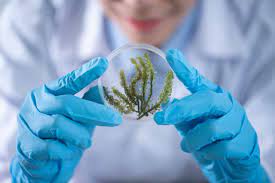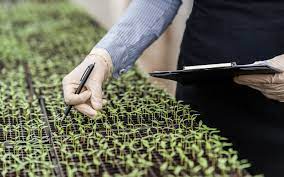In its simplest form, merit denotes advantage while demerit denotes disadvantage, at least in the context of our discussion in this unit. Advantage has been severally defined as the stage or an instance of being in a favourable circumstance or condition, or any condition, circumstance, opportunity that is particularly favorable to success, to any desired end; benefit or a gain or having the good side of something.
Others say it is simply a state of benefit i.e. gaining something, acquiring asset or an achievement of success that gives a feeling of joy, self-fulfillment, self-satisfaction. Disadvantage is construed as the opposite of each of the above situations.
Thus, each time a venture we embark on is advantageous or has merit, we are encouraged to thrive harder, explore more and continue in the path we have chosen. On the other hand disadvantage is a signal that all is not well with our venture(s).
An outcome that is disadvantageous signals a bad omen, a failure and reason to discontinue with whatever venture it is we have undertaken, or at least to change our approach.
In spite of these, the concept of advantage and disadvantage or merit and demerit is sometimes difficult to define, and even when we do it is subjective.
This is because, the classification of a venture as advantageous or disadvantageous, successful or a failure, may change with situations, persons and circumstances. Besides, most ventures collectively and individually may be both advantageous and disadvantageous depending on the context, circumstance, person and situation at hand.
For instance, establishment of a cement producing factory in an area is beneficial and advantageous to business and economic development but a disadvantage to the environment and environmental quality.
Again, establishing a dam in an area is beneficial for water supply, but a huge disadvantage for diseases transmission, e.g. malaria and schistosomiasis. Thus, judgment on the merits and demerits of establishing a cement factory or a dam must first define the premise of assessment and the beneficiaries.
What this suggests clearly is that the overall decision on the merit and demerit of any venture must involve well defined criteria of assessment for both the merits and demerits of a venture to establish a balance. It is, therefore, the net balance of such an assessment that will determine the overall classification of the venture as advantageous or disadvantageous.
Thus, absolute advantage or disadvantage does not exist in reality; only relative value exists, this depending on the circumstance and context of assessment. Furthermore, merit and demerit also vary according to criteria used in the assessment.
For instance, motor vehicles are advantageous when considered from the viewpoint of transportation, movement of goods and services and migration. But it is a disadvantage when viewed from the point of view of road traffic accidents and environmental pollution.
Merit and demerit are also very important guidelines for making choices. This is most pronounced in the employment sector where it has remained an important tool for hiring and firing staff, and for assessing performance and promotion.
In this sector, the merit system is seen as a method of personnel management designed to promote the efficiency and economy of the workforce and the good of the public by providing for the selection and retention of employees, in-service promotional opportunities, and other related matters, on the basis of merit and fitness.
Read Also : Application of Biotechnology to Remediation of Contaminated Land Sites
In a nutshell, merit and demerit provide for us a platform for deciding for a given context, what is good and what is bad, what should be used and what should not be used, what to retain and what should be discarded.

We will apply these principles as we consider the merits and demerits of the various biotechnology methods to decide on the basis of environmental health, whether these methods are good or bad, whether they should be retained and pursued, or whether they should be discarded.
Finally, in the big debate in the next unit, we will take the big decision on whether biotechnology is a good scientific innovation or a bad one that should be thrown out.

